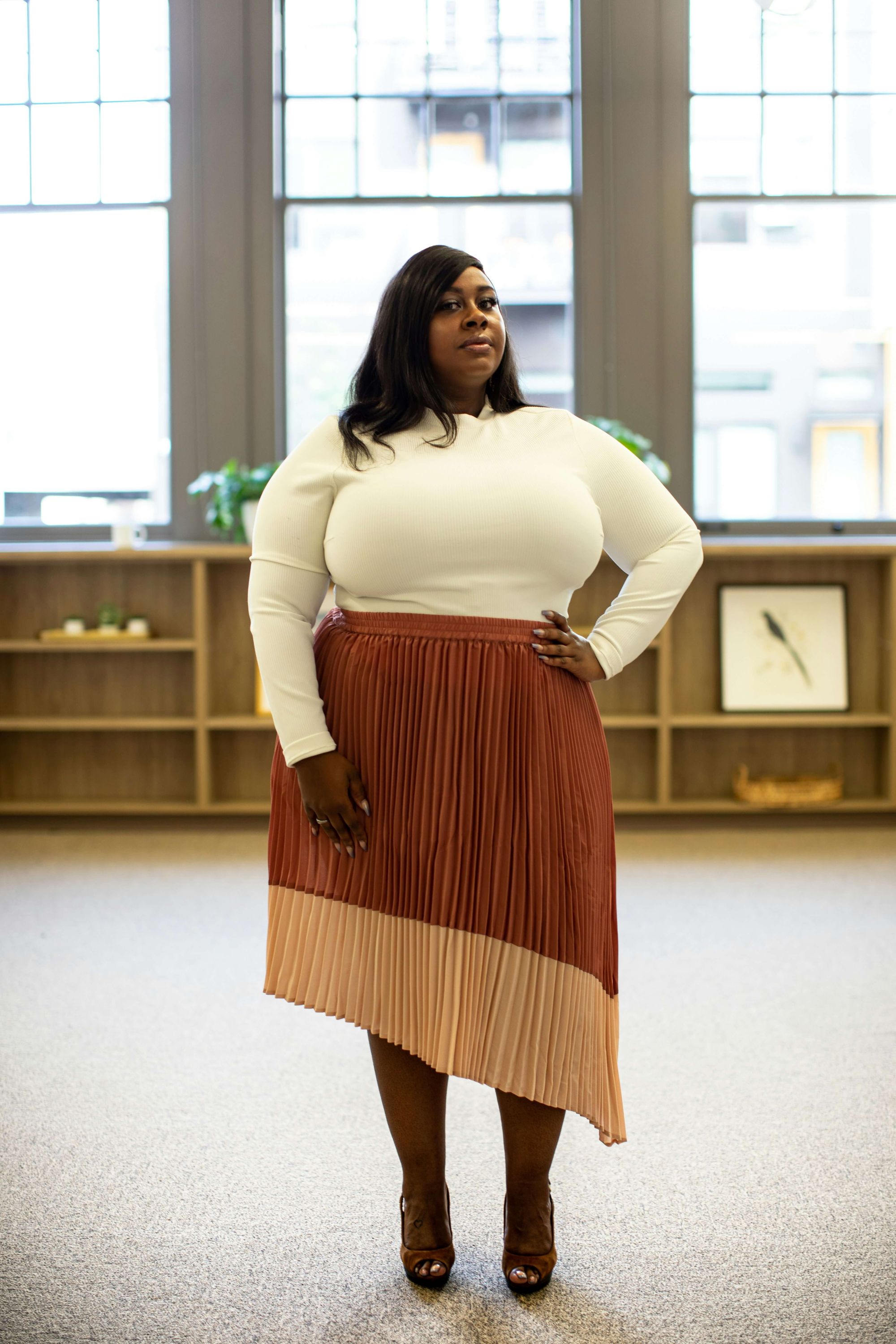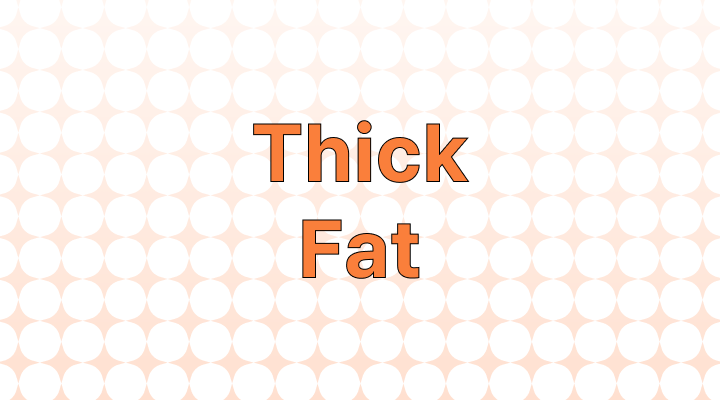- "Thick" and "fat" are both casual terms used for describing body size.
- "Thick" usually means plump and curvy in a more positive way, while "fat" means overweight in a more negative way.
💃 Nowadays, more women are interested in looking thick rather than looking thin.
💃 When I was younger, other kids used to make fun of me and call me "fat."
What's the difference between "thick" and "fat"?
The adjectives "thick" and "fat" are subjective and can carry different meanings. However, they are often associated with body size and can have distinct connotations:
Thick
- Positive Connotation: In some contexts, "thick" can be used to describe a woman with a curvy and shapely body, often with well-defined curves, fuller hips, and a smaller waist. It may imply a more muscular or athletic build.
- Neutral Connotation: It can also be used more neutrally to describe someone with a body size that is slightly above average, without negative implications.
- Mainly Women: The word is mainly used to describe how women look.
Fat
- Negative Connotation: "Fat" is often used as a descriptor for a larger body size and can carry negative connotations in many societies. It may imply excess body weight and, unfortunately, has been used in a derogatory way to stigmatize individuals based on their appearance.
- Women and Men: The word is used for both women and men.
Body size is a sensitive topic, so keep in mind that in certain contexts, "thick" and "fat" may be used as empowering language that celebrates all body types, while in other contexts, "thick" and "fat" may be used in a derogatory way.

The use of "thick" and "fat" over time
The Ngram graph below shows how often "thick" and "fat" have been used from the 1800s to the 2000s. "Thick" has always been used slightly more frequently than "fat."

How do we pronounce "thick" vs. "fat"?
In American and British English, "thick" is pronounced like "thik."
In American and British English, "fat" is pronounced like "fat."
These are just the standard pronunciations, and there may be slight variations depending on regional accents and individual speech patterns.
Example sentences of "thick"
- Celebrate body diversity by recognizing and appreciating individuals with various body sizes, including those who may be described as "thick."
- Embrace the beauty of curves and full figures, understanding that the term "thick" can be used positively to highlight shapeliness and strength.
- Promote body positivity by using inclusive language that acknowledges the uniqueness and diversity of different body sizes, including those considered "thick."
- Challenge stereotypes and stigmas around body size, using the term "thick" with appreciation for individuals' unique qualities and characteristics.
- Foster an environment where people feel comfortable and accepted, regardless of their body size, and where terms like "thick" are used without judgment.
- Highlight the strength and vitality associated with different body sizes, including those described as "thick," to counteract negative stereotypes.
Example sentences of "fat"
- Embrace diversity by appreciating that beauty comes in all shapes and sizes, including those traditionally labeled as "fat."
- It's essential to challenge societal norms and promote body positivity, recognizing that being labeled as "fat" does not diminish a person's worth or value.
- Avoid using "fat" as a derogatory term and replace it with more neutral language when discussing body sizes.
- Encourage self-love and acceptance by reframing conversations about body image without stigmatizing words like "fat."
- Use respectful language that doesn't perpetuate harmful stereotypes, acknowledging that individuals labeled as "fat" can be healthy and happy.
- Challenge harmful societal perceptions by appreciating the diversity of bodies and rejecting the idea that being "fat" is inherently negative.
Examples from the web
"'Slim thick' (sometimes styled as 'slim thicc') started as a purely aesthetic term in popular and celebrity culture but has since moved to the gym and training world, with slim thick now a heavily used term in strength training and fat-loss conversations." - Women's Health
"As obesity becomes a greater social and political issue, campaigners say they have a human right to be fat – and that science backs them up" - The Guardian
FAQ
Are "thick" and "fat" the same?
"Thick" implies a more curvy or full-figured body, often with a positive connotation. On the other hand, "fat" is a more direct term for excess body weight and is often associated with negative connotations related to health or appearance.
Does "thick" mean chubby?
The term "thick" doesn't necessarily mean "chubby." "Thick" is generally used to appreciate a person's curves in a positive or neutral context. Meanwhile, "chubby" is used to describe someone who has a slight excess of body fat. It's not intended to be offensive and can be an affectionate way of referring to someone with a fuller or softer appearance.
Is "thick thighs" a compliment?
"Thick thighs" is usually a compliment. In fact, the Internet recently created the phrase "thick thighs save lives" as a playful and humorous expression that celebrates and embraces individuals with fuller thighs. It's often shared on social media as a form of body positivity and self-acceptance.

Want to sound like a native speaker?
Engram’s AI-powered grammar checker makes your English sound like a native speaker’s, suggesting natural English expressions on top of fixing grammar, spelling, punctuation, word order, and vocabulary.

References:
















